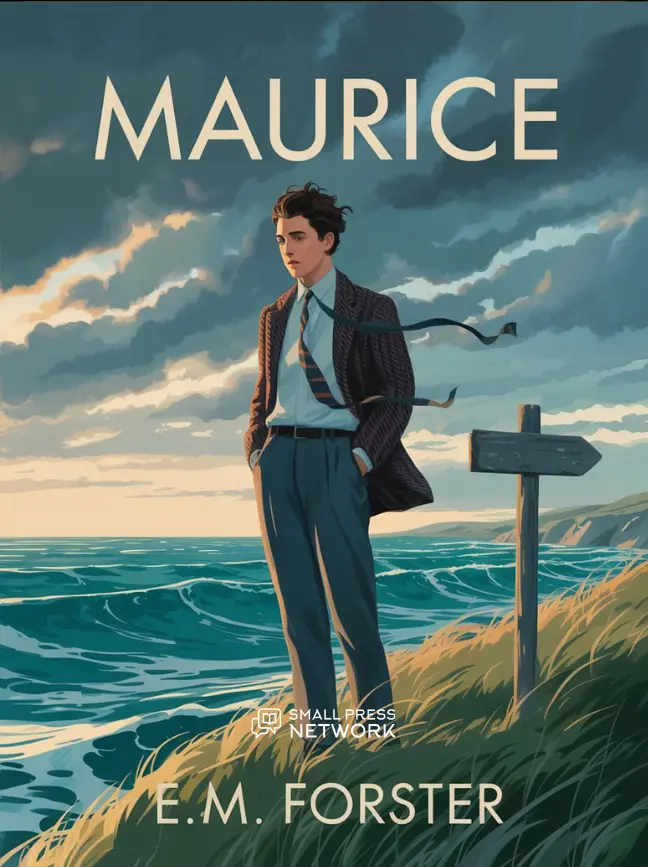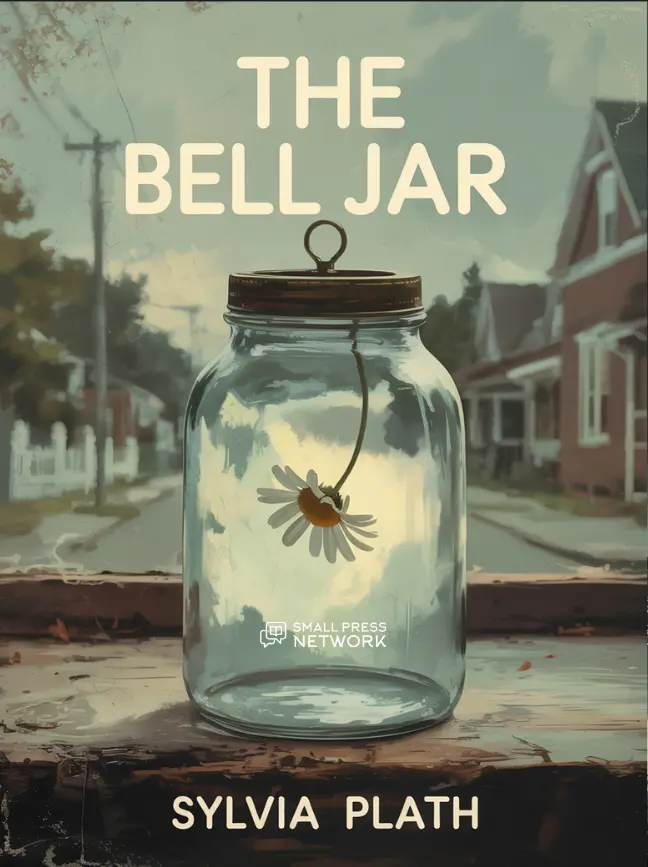(Bianca to the previous group.)
Cassio. What a mermaid she is! Damn it, and she smells of beetlejuice to boot! What does it mean that you’re following me around like that?
Bianca. The devil and his grandmother may do that! Tell me, what did you want with that handkerchief you gave me just now? I was a great fool to take it: I should inspect the work? A fine piece of work that you found in your bedroom, and you don’t know who could have lost it there. I won’t be honest if it isn’t a gift from some honorable matron; and I should inspect the work on it? Here, give it to your horse-racer: wherever you got it, I won’t inspect anything.
Cassio.
Now, now, my beautiful Bianca, gently, gently!
Othello (aside.)
By heaven, that’ll be my handkerchief.
Bianca. If you want to come to dinner with me today, you can; if not, don’t come until someone has made arrangements for you.
(She leaves.)
Jago.
Run after her, run after her.
Cassio.
I have to, otherwise she’ll start a fuss in the street.
Jago.
Would you like to have dinner with her?
Cassio.
Yes, I have it in mind.
Jago. Well, perhaps I’ll see you there; for I would very much like to talk to you.
Cassio.
I beg you, come; will you—
Jago.
Depend on it—
(Cassio leaves.)
Scene Five.
(Othello and Iago.)
Othello.
What manner of death shall I inflict on him, Iago?
Iago.
Did you see how he made fun of his crime?
Othello.
Oh, Jago!
Jago.
And did you see the handkerchief?
Othello.
Was it mine?
Iago: Yours, upon my honor! And have you seen how much he cares for that simple creature, your wife?—She gave it to him, and he gives it away to his whore!
Othello.
I would I could murder him for nine years—so fair
a woman! So beautiful a woman! So graceful a woman!
Jago.
No, you must forget that now!
Othello. Oh, let her rot, wither, and go to hell, ere it be day again! She shall not live! No, my heart is turned to stone: I strike it, and my hand aches with it—Oh, the whole world hath no more lovely creature! She might have lain by an emperor’s side, he would have been her slave!
Jago.
Not at all; those are thoughts that are completely irrelevant.
Othello. To the gallows with her, I only say what she is—such a fine worker with the needle—a fine musician—Oh, she would sing the wildness out of a bear, so animated, so witty! So full of spirit!
Jago.
She’s all the worse for it.
Othello.
Oh, a thousand, a thousand times: And then of such a captivating form!—
Jago.
Just too captivating.
Othello. Yes, that is true. But yet it is wretched, Iago—oh, Iago, it is wretched!—
Iago.
If you are so tender against her malice, give her a
patent that she may insult you as she pleases; if you
are indifferent, no one need trouble themselves about it.
Othello.
I’ll cut them into little pieces: to make me a cuckold!
Jago.
There’s something nasty about her!
Othello.
With my lieutenant!
Jago.
That’s even nastier!
Othello. Get me a tin of poison until tonight, Iago; I will have no word with her—I dare not risk my constancy on her irritations—Tonight, Iago—
Iago. But not with poison; strangle her in her bed, the bed she has desecrated.
Othello.
Well, well; I like this means because it is just—
Iago. And as for Cassio, leave him to me; you shall hear more by midnight.
(A trumpet behind the scene.)
Othello.
Excellent! Eh? What does this trumpet mean?
Iago. Presumably something from Venice—It is Lodovico, sent by the Duke: Ah, look, your wife is already with him.
Scene Six.
(Enter Lodovico, Desdemona, and retinue.)
Lodovico.
Greetings, worthy general.
Othello.
I return the wish with all my heart, my lord.
Lodovico.
The Duke and Senators of Venice greet you.
(He hands him a letter.)
Othello.
I kiss the document of their commands.
Desdemona.
And what’s the news, my dear cousin Lodovico?
Iago.
I am very pleased to see you, sir; welcome to Cyprus.
Lodovico.
Thank you; how is Lieutenant Cassio?
Iago.
He lives, sir.
Desdemona. Cousin, there has been an unfriendly rift between my husband and him; but you will make all right again.
Othello (ahead of himself)
Are you so sure of that?
Desdemona:
My husband?
Othello (reads.)
“Fail not to do this, so love yourselves—”
Lodovico (to Desdemona)
He didn’t call you; he’s engrossed in his writing. Is there a
misunderstanding between the general and Cassio?
Desdemona. A very unfortunate one; I would gladly do anything to reunite them, so dear is Cassio to me.
Othello.
Fire and brimstone! (before him.)
Desdemona.
My husband!
Othello.
Are you in your right mind?
Desdemona (to Lodovico.)
What, is he angry?
Lodovico. Perhaps the letter has stirred him somewhat. For, as I suspect, they are summoning him home and ordering him to cede his government to Cassio.
Desdemona.
Believe me, it pleases me.
Othello:
Indeed! (to himself.)
Desdemona.
My husband!
Othello.
I am glad to see you so great. (To himself.)
Desdemona:
What, my dearest Othello?
Othello (striking at her.)
Devil!—
Desdemona.
I don’t deserve this.
Lodovico. My lord, no one in Venice would believe this, even if I swore I saw it. It’s a great deal; forgive her; she’s crying.
Othello. O devil! devil! Could the earth be impregnated with women’s tears, every drop she weeps would become a crocodile: out of my face—
Desdemona (about to leave)
I will go, if you hate the sight of me so much.
Lodovico: Truly, an obedient woman—I beg your grace, call her back.
Othello.
Madam—
Desdemona.
My husband—
Othello.
What will you do with her, sir?
Lodovico.
Who, me, sir?
Othello. Yes; you would have me make her turn again. Lord, she can turn and turn and still go on; she is a master of it. And she can weep too, sir, weep; and she is obedient; as you said, obedient; very obedient—weep on—As for that, sir—O, she plays the passions admirably!—I am recalled—
(to Desdemona.)
Be off you, and I will send for you again at once—My
lord, I obey the sovereign’s command and will
return to Venice—Be off, be off!—
(Desdemona leaves.)
—Cassio shall have my place. And you, my lord, will do me the honor of supper with me tonight. You are welcome in Cyprus—
(in front of him.) Goats and monkeys!
{ed. * [Are these Venetians,] he thinks.}
(He leaves.)
Scene Seven.
(Lodovico and Iago remain behind.)
Lodovico.
Is this the noble Moor whom our entire Senate
calls his all and all? Is this the spirit whose steadfast virtue no
passion, no fortune, no chance can shake?
Jago.
He’s changed a lot.
Lodovico.
Is he sane? Is he suffering from a brain disorder?
Iago. He is what he is; I will not say what I think. I would to God he were what he could be, if he is not what he ought to be.
Lodovico.
What, beat his wife!
Jago. Indeed, it was not fine; and yet I wish I knew that this trick was the worst.
Lodovico. Is he usually like this? Or did writing have such a strong effect on his blood that for the first time he felt so unlike himself?
Iago. It is a dreadful thing, alas! It would not be proper for me to tell what I have seen and heard. You will come to know him through yourselves, and his own conduct will so characterize him that I can spare my words. Just follow him and see how he will proceed.
(They leave.)
Scene Eight.
(Transforms into a hall in the palace.)
(Othello and Aemilia enter.)
Othello.
So you didn’t see anything?
Aemilia.
Ever heard of such a thing, or even suspected it.
Othello.
You saw Cassio and her together, didn’t you?
Aemilia. But I saw no evil, and I heard every syllable they spoke to each other.
Othello.
What, they never whispered together?
Aemilia.
Never, my lord.
Othello.
And did they never send you away?
Aemilia.
Never.
Othello. Perhaps to get her fan, her gloves, her mask, or something like that?
Aemilia.
Never, my lord.
Othello.
That’s strange!
Aemilia. I would stake my soul on a stake, gracious sir, that she is honest. If you think otherwise, banish that thought, for it deceives your heart. Heaven reward the wretch who may have put it into your head with the serpent’s curse! Truly, if she is not virtuous, chaste, and faithful, there is no happy man on earth; the purest of her women is as ugly as blasphemy.
Othello.
Go, call her here.
(Aemilia leaves.)
She says enough; but she is a simple procuress who can say no more—She is a mischievous whore who knows how to carefully lock up her nasty secrets—and yet she kneels before you in her room and prays: I saw it myself.
Ninth Scene.
(Desdemona and Aemilia enter.)
Desdemona.
What is your will, my husband?
Othello.
Come closer, chicken, if you please.
Desdemona.
What do you like?
Othello.
Let me see your eyes; look into my face.
Desdemona.
What horrible imagination has come over you?
Othello (To Aemilia.)
A piece of your office, madam; leave the actors alone,
and shut the door; cough, or call if any one comes.
Your secret, your secret—no, begone.
(Aemilia leaves.)
Desdemona. On my knees, what do these words mean? I see there is something terrible in your words, but I still do not understand them.
Othello.
What? What are you?
Desdemona.
Your wife, my lord; your faithful, honest wife.
Othello. Come, swear this to me; pronounce your own judgment; or, being so like a heavenly being, the devils might fear to lay hands on you. Therefore bring upon yourself a double damnation; swear you are honest.
Desdemona.
Heaven knows.
Othello.
Heaven knows you’re false as hell.
Desdemona:
To whom, my husband? With whom? How am I wrong?
Othello (He weeps.)
Ah, Desdemona! Away, away, away!—
Desdemona. O the unfortunate day! Why do you weep? Am I the motive cause of these tears, my dearest husband?—If you perhaps suspect my father of being responsible for your recall, let me not take the blame; if you have lost him, then I have lost him also.
Othello. Had it pleased Heaven to try me with afflictions, had it rained all manner of pains and humiliations upon my bare head, had sunk me in poverty to the very lips, had it brought me into slavery without hope of deliverance, I should still have found in some recess of my soul a drop of patience. But, alas! to make myself a fixed mark for the immovable finger of mocking contempt—and yet even that, even that I would yet be able to bear. But then,
{ed. * In order to please a prevailing, although perhaps unjust, prejudice, it has been necessary to deviate somewhat from the literal meaning of the original.}
where the peace, the comfort, the bliss of my life lay, to be driven from your heart, or to possess it as a cistern in which foul toads dwell: Take yourself away, Patience, you young, rosy-cheeked Cherubim,—There I look grim as hell.
Desdemona. I hope my generous husband knows me well enough to believe me innocent.
Othello. Oh, yes, like summer flies in slaughterhouses, brought to life by a breeze. O you poisonous weed, why are you so lovely to look at? You smell so good it makes one’s head hurt. I wish you’d never been born!
Desdemona: Heavens! What sin can I have unknowingly committed?
Othello. What, you still ask? You ask what you have done? What you have done?—O you worthless woman, I would make my cheeks a fire-cake, where discipline must burn to ashes, if I could name your deeds. What? What you have done? Heaven stops its nose, and the moon its eyes; even the whoring wind, which kisses all that comes its way, has crept into the hollow mines of the earth and will not hear. What you have done?—Insolent meze!
Desdemona:
By heaven! you do me wrong.
Othello.
You’re not a meze?
Desdemona.
No, as surely as I am a Christian. If a woman who has kept herself pure for
her husband alone and from every strange, unchaste, illicit
touch is not a meze, then I am not.
Othello.
What, not a whore either?
Desdemona:
No, as I wish to be saved!
Othello.
Is it possible?
Desdemona:
O heavens, have mercy on us!
Othello.
So I beg your pardon. I took you for that cunning
whore of Venice who married Othello—
Tenth Scene.
(Aemilia to the previous ones.)
Othello. You, lady casual maker,—you, you, ay, you! We have done our business. Here is money for your trouble; I pray you, turn the key, and keep our secret to yourselves.
(He leaves.)
Aemilia.
For heaven’s sake, what thoughts is the gentleman in!—How
is Your Grace? How is my dearest
lady?
Desdemona (alone.) It is fair that I should be treated thus, very fair; how have I behaved that he should have found even the shadow of a reason for the slightest suspicion?—
Eleventh Scene.
(Iago and Aemilia to Desdemona.)
Jago.
What is Your Grace’s command? How is it?
Desdemona. I cannot say; those who raise your children do so with kindness, and lay not too much on them; he might have scolded me with gentleness: for, to speak the truth, I am like a child when scolded.
Jago.
What are we talking about, Madam?
Aemilia.
Ah, Iago, the gracious lord has so whored her,
treated her so shamefully, and poured such vile names upon her, that an honest
heart cannot bear it.
Desdemona.
Do I deserve such a name, Iago?
Jago.
What name, Madam?
Desdemona.
The one, she said, that my husband gave me.
Aemilia. He called her a whore; a drunken beggar would be ashamed to give his human such a name.
Jago.
Why did he do that?
Desdemona:
I know not; what I do know is that I am nothing of the sort.
Iago:
Weep not, weep not; this is a painful business!
Aemilia.
Has she rejected so many great parties—has she
sacrificed her father, her country, her friends—to
be called a whore? Shouldn’t that make one weep?
Desdemona:
This is my fate now.
Jago.
You don’t have to suffer it from him. How did this
offense come upon him?
Desdemona.
Heaven knows.
Aemilia. I will let myself be hanged unless some hellish villain, some busy, rapacious scoundrel, some smooth, licking, snake-tongued slave, to gain his favor, has blasphemed her to him; I will let myself be hanged if it is otherwise.
Jago.
Fy, there is no such man alive, it’s impossible.
Desdemona:
If such a man exists, heaven forgive him!
Aemilia. Forgive him with a strike! And the devil gnaw his damned bones! Why should he call her a whore? Who could be her lover? Where? When? How? What is even a chance of it? The Moor has been lied to by some gallows-fighting villain, some miserable, worthless arch-scoundrel. Oh heavens, that you would bring such fellows into the light of day and put a hostage in every honest hand, so that you could whip the raker naked through the whole world, from one end of the earth to the other!
Jago.
Just don’t scream so loudly.
Aemilia. Oh, those nasty fellows! It was just such a scoundrel who once turned your head the wrong way and made you believe that I was in secret agreement with the Moor.
Iago.
You are not wise; go, go.
Desdemona.
Ah, Iago, tell me, what shall I do to
win my husband back? My good friend, go, speak to him; by this
light of heaven, I know not how I lost his heart.
Here I kneel;
(She kneels.)
If ever my will, in word, thought, or deed, has rebelled against its duty; or if ever my eyes, my ears, or any of my senses have delighted in any other object; or if I do not always love him, have loved him, and should he cast me away as a beggar, I will love him most tenderly, no consolation comes to my soul! Indecency can do much; it can take my life, but it cannot diminish my love. I cannot say, whore; I am horrified to have uttered the word now; but to do what it signifies, the world, with all its mass of vanity, could not move me.
Iago. I beg you, be content; it is only a caprice of his; the affairs of state are on his mind, he is displeased with them, and his anger must now break out against you.
Desdemona.
If only it were this—
Iago. There is nothing else, I answer for it. (Trumpets.) Hark, these trumpets call for supper. The representative of Venice remains at table; go in and weep not; all will be well again.
(Desdemona and Aemilia leave.)
Twelfth Scene.
(Rodrigo (to Iago.)
Jago.
Hey, where are you from, Rodrigo?
Rodrigo.
I don’t think you’re being honest with me.
Jago.
What do you think?
Rodrigo. Every day you cast some kind of mist before my eyes, Iago; and I am finally beginning to see that, instead of bringing me a single step nearer to my hopes, you have set me farther back than I ever was. I will endure it no longer; nor am I of the opinion that I will bear so calmly what I have already foolishly suffered.
Jago.
Will you listen to me, Rodrigo?
Rodrigo.
My goodness, I have heard too much; your words and your
deeds have no connection whatsoever.
Iago.
You accuse me most unjustly.
Rodrigo. I speak the plain truth: you have robbed me of my entire fortune. The jewels you received from me to deliver to Desdemona were meant to seduce a Vestal Virgin. You told me she had received them and brought me the most comforting assurances of their good effect, but I find none.
Jago.
Good, go on; very good.
Rodrigo. Very good, go on. I can’t go on, sir, and it’s not very good. No, I think it’s malicious, and I’m beginning to realize that I’m just being led around on a fool’s rope.
Jago.
Very good.
Rodrigo. I tell you, it is not very good. I will reveal myself to Desdemon herself; if she will give me back my jewels, I will be wise and no longer burden her with my wooing. If not, I assure you, I will seek my compensation from you.
Jago.
You have now spoken—
Rodrigo:
Yes, and nothing but what I, for my soul, have in mind to do.
Iago.
Why, now I see that you have fire in your belly; and from this
moment I have a higher opinion of you than ever.
Give me your hand, Rodrigo; you have had every reason
to reproach me, but I swear that I
have been honest with you in the whole matter.
Rodrigo.
It didn’t show up.
Iago.
I must confess, indeed, your suspicions are not without
probability. But, Rodrigo, if you have what I
now, with better reason than ever, believe you have (I mean,
steadfastness, heart, and valor), show it tonight.
If you will not lie with Desdemon the next night
, take me a traitor, and dispose of me
as you will.
Rodrigo. Okay, what is it? Is it something that can reasonably be done?
Iago. Know, my lord, that a special commission has arrived from Venice to appoint Cassio in Othello’s place.
Rodrigo.
Is that true? Well, Othello and Desdemona return to
Venice.
Iago. Oh no; he is going to Mauritania, and taking his beautiful Desdemona with him; this will infallibly happen, unless something should happen to prolong his stay here: and that could be more assured than by putting Cassio aside.
Rodrigo.
What do you call putting Cassio aside?
Iago.
That goes without saying; make him incapable of
taking Othello’s place, in a word, break his neck.
Rodrigo.
And you want me to do that?
Iago. Yes, if you have the heart to do yourselves good. He is supper with a courtesan tonight, and I will keep him company there. He knows nothing yet of his promotion; if you will only watch until he leaves there (and I will see to it that it shall be between twelve and one o’clock), you can surprise him with the greatest convenience. I will be near to support your attack, and we will have him between two fires. Come, do not stand so dismayed; come with me; we will speak of the matter. I will show you that his death is so absolutely necessary that you will feel obliged to promote it. It is now almost dinnertime, and the night is taking over—we must go.
Rodrigo.
I need more light on this matter—
Jago.
You shall have this.
(They leave.)





